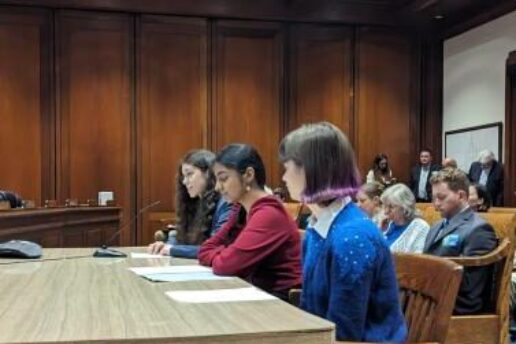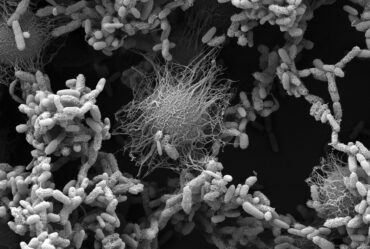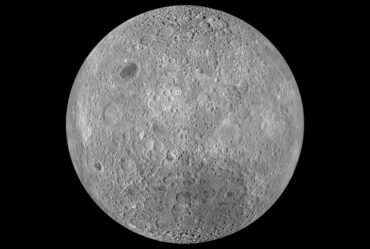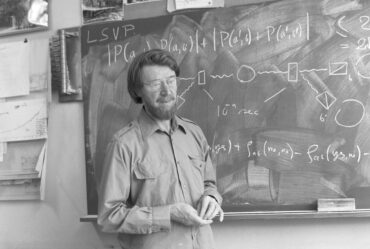
In defense of dark skies
In the fourteen years that Tim Brothers has worked at MIT’s Wallace Astrophysical Observatory, the Milky Way has grown dimmer. He estimates that in that time frame the skies over Wallace have been brightening at about 3% a year as development in the area has increased light pollution in the form of skyglow, or the artificial brightening of the night sky.
This isn’t just a problem at Wallace; an article published in Science at the beginning of the year found that skies everywhere are getting brighter each year because of light pollution. But disappearing celestial bodies is more than just an aesthetic issue; brighter skies are forcing observational astronomy labs like Wallace to change the research that they can do.
“A lot of the objects we study in our department, the cutting-edge research that we do, is on things that are either very small, very distant, or very faint,” Brothers, who is the observatory manager at Wallace, explains. One project the observatory runs allows undergraduates to follow up on targets that had been marked as exoplanet candidates by the TESS satellite, an MIT-led NASA mission; now, the project is at risk as fainter targets disappear.
As a co-founder of the Massachusetts chapter of Dark Sky International, Brothers has been working with others on a bill requiring Massachusetts to follow other Northeastern states and enact dark skies legislation to reduce light pollution; it is the last state to do so.
“We’re trying to let the legislators know that if we don’t do something, MIT’s research, education and outreach programs are going to be further impacted,” he says. On October 31, Brothers brough three MIT undergraduate students with him to the Massachusetts State House to testify in favor of the bill he helped put together.
“This is the first time I brought undergraduates because I thought it was really important for them to hear the youth perspective,” Brothers says. “They’ve heard enough from me; I wanted them to hear from the next generation of our aspiring, energetic astronomers that really have something to lose.”

Erin Cusson, a sophomore majoring in physics, grew up in New Hampshire, where she had access to darker skies that inspired her to pursue a minor in astronomy. Once she arrived at MIT, she took 12.409, Hands-On Astronomy, followed by an Undergraduate Research Opportunity (UROP) at Wallace and is now taking 12.410, Observational Techniques of Optical Astronomy.
“If I didn’t have the ability to look up at the night sky and see those stars and be inspired, I don’t know what the course of my life would have looked like,” she says. Thinking about how different the skies might look in the next 10 or 15 years has her worried for what will be lost for people like her young cousin and made testifying a “no-brainer”.
Ella Sheffield, a first year planning on studying astrophysics, was acutely aware of the detriments of light pollution during stargazing sessions as part of her high school astronomy club.
“I couldn’t actually see the stars that I was trying to look at, and so got interested in what you can do to try and prevent light pollution and the various consequences this has,” she says. She’s now researching light pollution as part of a UROP at Wallace. “It turns out, there are very few downsides to having fewer lights.”
Steps for reducing light pollution are straightforward and possible to implement on MIT’s campus or at individual, local, and state levels: Using light only when needed and in appropriate levels; targeting light distribution where required; using smart controllers (i.e. timers and dimmers); and minimizing blue light with lower color temperatures. Fortunately, these solutions save energy, reduce carbon consumption, and decrease operational costs.
“You can solve it at the speed of light,” Brothers jokes.

Astronomers were not the only ones advocating for the legislation at the State House. Light pollution has been tied to other harms, such as negative impacts on human health and sleep patterns and local ecology. Other experts in fields such as medicine and ecology testified as well.
“It was really cool to see that we’re not the only ones being affected by this issue, and that this has really been an ongoing issue for decades,” says Prajna Nair, a junior in physics with an astronomy minor who also testified. “That was really eye opening.”
Testifying was only one part of the process it will take for the bill to pass; first it needs to be approved by multiple committees before it is put before both houses for a vote. And even if it passes, it’s just one small push that is part of a larger need for change. But Brothers and the undergraduates who spoke were optimistic, saying that legislators seemed receptive to their perspectives.
“The point is not the act of speaking, it’s what is taken away afterward,” says Cusson. “If there’s any fraction of what I said that lingers in the minds of the lawmakers, that’s what’s most important. And it didn’t have to be me, it just had to be someone talking about this.”


